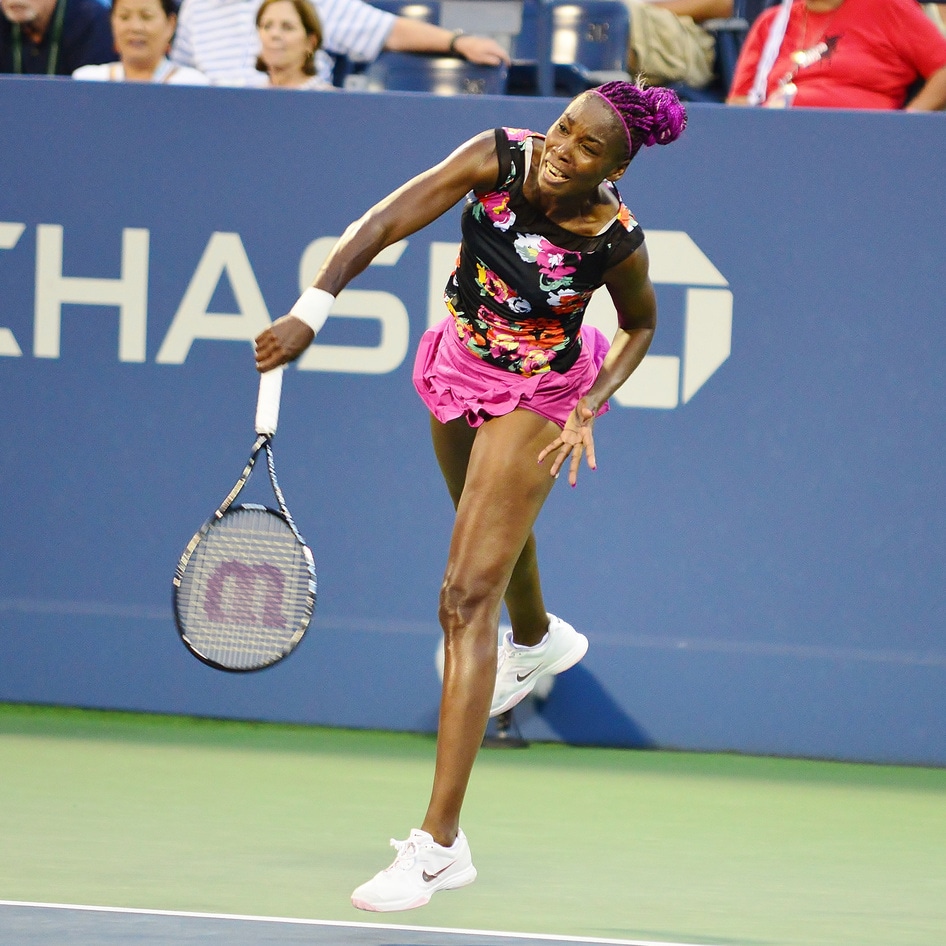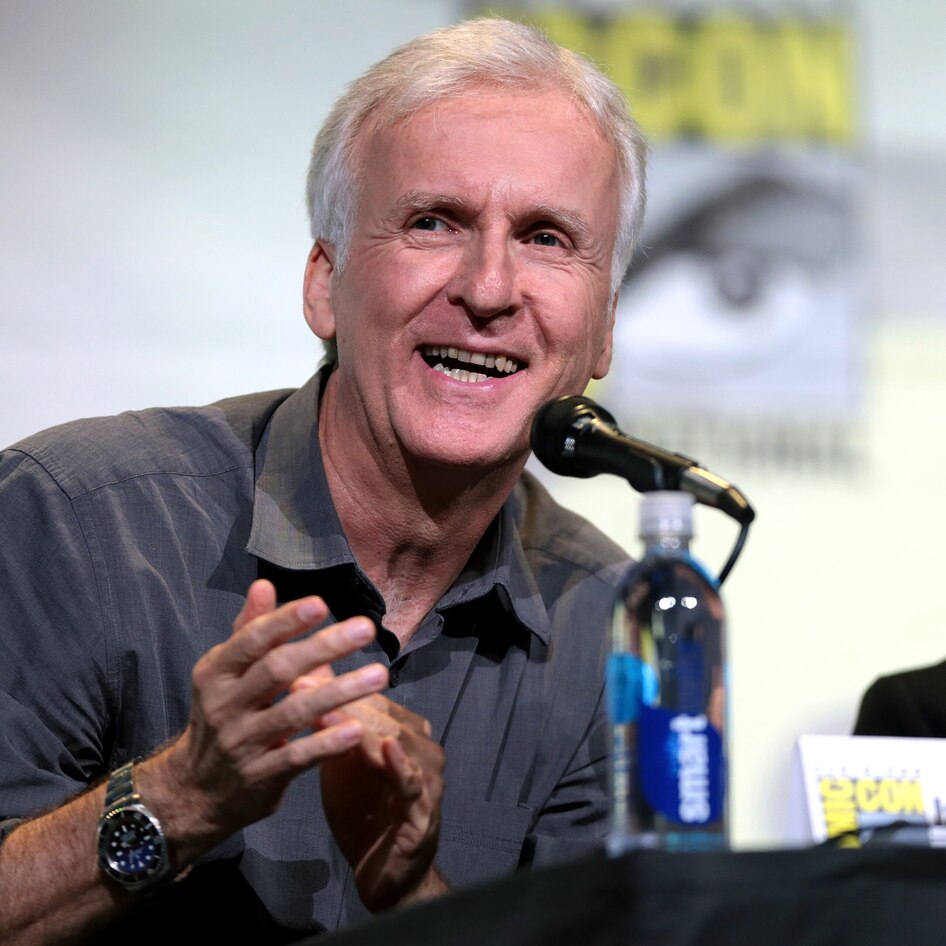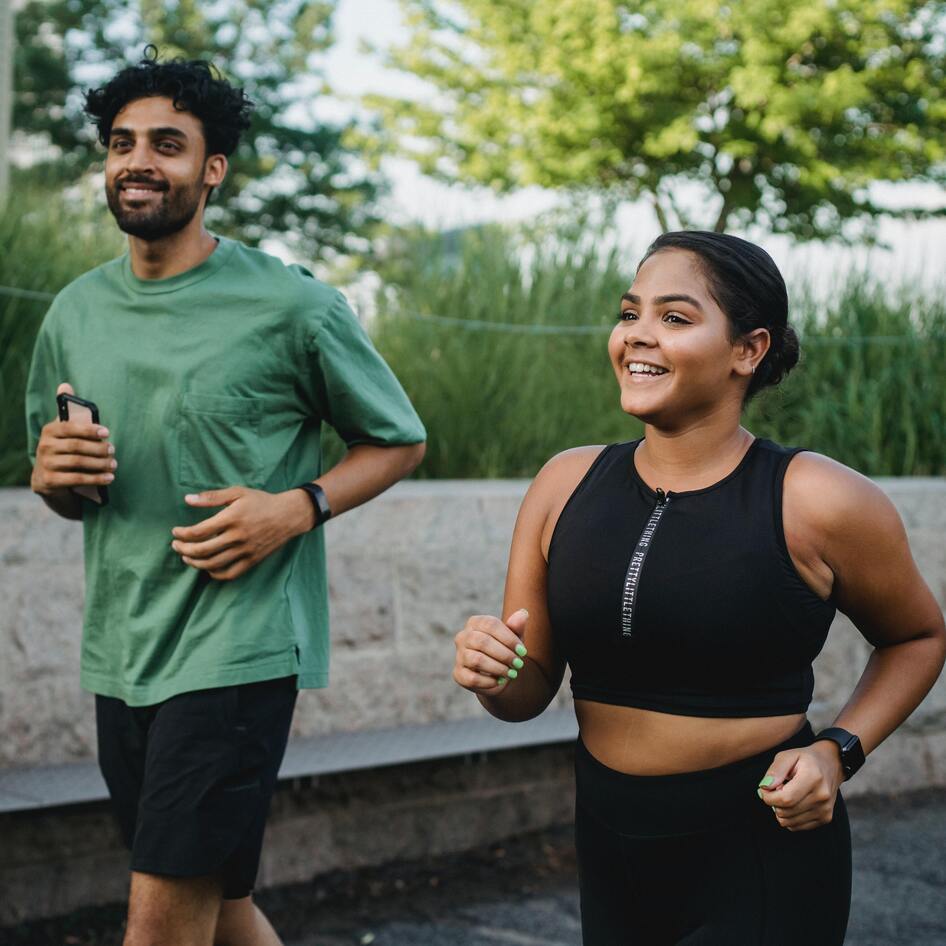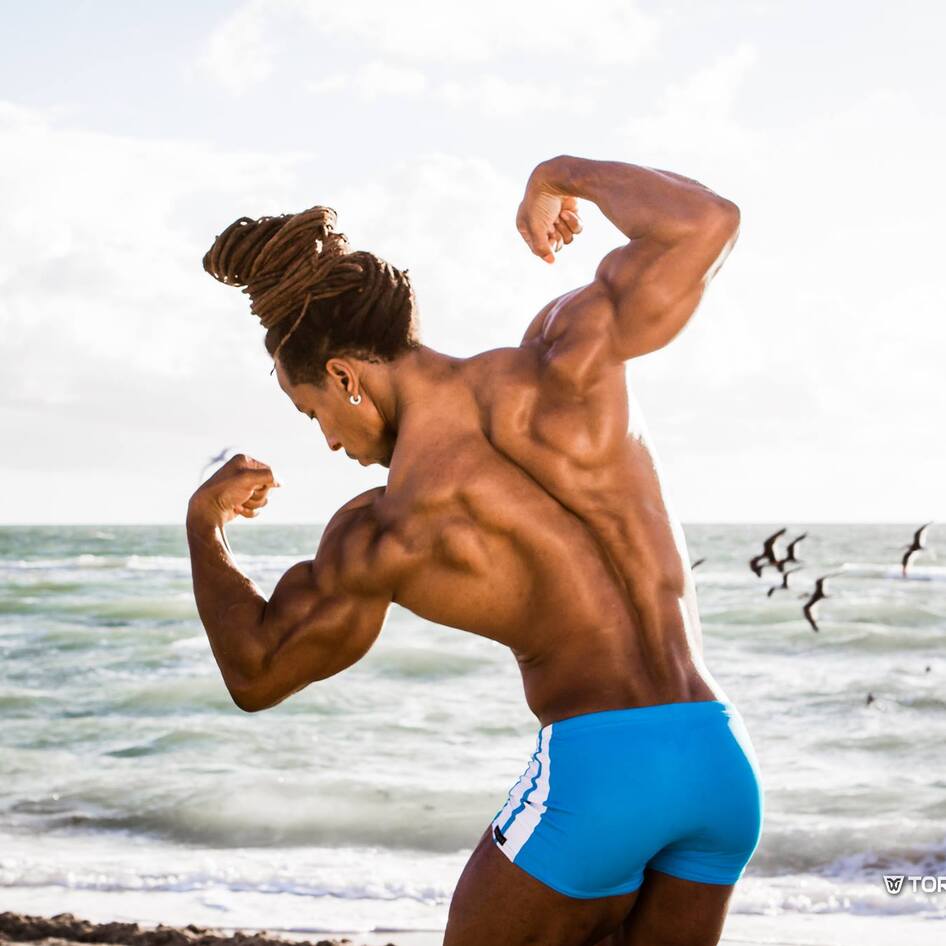10 Reasons New Vegan Documentary The Game Changers Will Literally Change Every Game
One part What the Health and 10 parts of the most inspiring fitness routine you’ve ever seen, this new film—executively produced by James Cameron—will have you sweating in your seat.
January 19, 2018
New documentary The Game Changers—executively produced by James Cameron, directed by Louie Psihoyos (who also directed The Cove), and narrated by mixed martial arts legend James “Lightning” Wilks—debuted tonight at Sundance Film Festival. VegNews got a sneak peak at the plant-based documentary, and we’re going to bet that Sundance attendees are feverishly discussing the groundbreaking film at this moment. That’s because The Game Changers puts plant-based elite athletes—such as fast-cycling Olympic medalist Dotsie Bausch, endurance runner Scott Jurek, and charismatic strongman Patrik Baboumian—in the spotlight, with riveting fitness footage that’ll make you search the back of your closet for your gym shoes. Naturally, the film is backed by scientific evidence that a plant-based diet really does give you an edge in achieving top physical performance. Here are just 10 fascinating facts we learned while watching this truly game-changing documentary.
1. Scott Jurek is an absolute badass
The ultrarunner might be thin, but he is not frail. To set his 2015 record of being the fastest person to complete the Appalachian Trail, Jurek ripped a bunch of ligaments, completely wore himself out, woke up at 4:30 am (for 46 days in a row), and ran/walked/crawled in record rainfall and wind to prove that a plant-based diet can get you to the top of this 2,189-mile trail that starts in Georgia and ends in Maine. “The potential of the human body is immense,” Jurek says. “You can come out of some of the deepest, darkest holes if you keep pressing forward.” The man had previously run 164 consecutive miles (equivalent to about six marathons) to set another American record. Now that’s what we call plant-powered!
2. B-12 is not a vegan-only issue
Vegans do not get vitamin B-12 “naturally” from food; that is true. But even meat-eaters are low in B-12, according to doctors interviewed in the film. That’s because we live in an unnatural world. Whereas, before the modern era, we would get this non-animal based nutrient from soil or from the water we drink, the chemical agents present in our world (such as pesticides) kill off our natural sources of the vitamin, which creates a need for supplements. We take this fact as further evidence that our society does not live in alignment with the natural world.
3. Arnold Schwarzenegger hates meat marketing
The Terminator (and prolific bodybuilder/slash “Governator”) spends a portion of the film talking about how marketing techniques have sold false narratives to men about the nutritional value of meat, and how he, at nearly 70 years old, is thriving on a plant-based diet. “You have got to understand that’s marketing,” Schwarzenegger says. “It’s not based in reality.”
4. Marketing of animal products mimics that of cigarettes
The film reveals that when cigarettes were banned in sports advertising, Big Meat stepped in with its marketing dollars. “[It’s] playing the same game,” Wilks says, “with a different product.” Big Macs became the Camels of the modern era, and athletes began to believe they needed to consume animal protein in order to be strong.
5. Our teeth are made for grinding plants
Anatomically, we are not designed to eat animals, as our canines are a poor example of the ripping teeth needed to slice meat. Instead, we have what the film refers to as a “mortar and pestle” set of teeth, more designed for making (vegan) pesto than chewing raw meat.
6. Patrik Baboumian is a superman
There is a moment in the movie when Baboumian—who held Germany’s strongest man title in 2011 and currently holds multiple world records in weightlifting—lifts a car and tosses it on its side as if it’s a special effect. His inspiration for being a strongman comes from a tragic car accident involving his mother, father, and sister in which only his mother survived. Baboumian vowed to do whatever it takes to be a hero to all living beings since then. “When I stopped eating meat [in 2005],” Baboumian says, “I got stronger and bigger.”
7. Plant protein is super powerful
According to sport nutritionist James Loomis, MD, consuming carbohydrates is a powerful source of energy (in the form of glycogens). “I think one of the most common misconceptions in sports nutrition,” Loomis says, “is that we have to have animal protein, in particular meat, to get big and strong and perform at a high level. That’s just clearly not true.” As it turns out, all of the protein that people consume when eating animals comes from the protein the animals consume from their plant-based diets, which makes animals the unnecessary middle-men. The average vegan gets 70 percent more protein than they need from plants alone.
8. Plants speed recovery
Recovery from physical strain is what distinguishes casual athletes from the elite. Plant foods have 64 times more antioxidants than animal foods. As it turns out, iceberg lettuce—regarded as a low-nutrient food—has more antioxidants than salmon or eggs. All of this means that switching to a plant-based diet reduces inflammation by 29 percent in as little as three weeks.
9. Eating meat messes with erections
A study conducted by Aaron Spitz, MD—lead delegate of the American Urological Association—found that total testosterone increases by 26 percent on plant-based diet, which equates to good times in the bedroom. “The more meat men eat,” Spitz says, “the more quickly they lose their manly manhood.” During the film, three professional athletes underwent tests for their erection frequency and strength (the latter measured by a clever little device) for two nights: once after consuming meat-based burritos and the next night after consuming plant-based versions of those meals. After the plant-based meals, all men experienced bigger and harder erections—some increased erection frequency by up to 500 percent with bigger penile circumference. “I think these results are going to wake up people that have penises,” Spitz said after the tests, “and I think this will wake up people that like people that have penises.” In response to where the three men would take their dates to eat on Valentine’s Day, the unanimous decision was vegan eatery Veggie Grill.
10. Plant-based diets promote longevity
Every tiny advantage counts when human bodies are pushed to their maximums. Elite athletes—such as Olympic cyclist Dotsie Bausch—endure a number of physical demands at the starting line, such as having the strength to start pedaling at an incline that requires producing 800 watts of power. Bausch won silver in the 2012 London games at an awe-inspiring 39 years of age—making her the oldest athlete, female or male, ever to medal in the cycling event. “When I transitioned over to an entirely plant-based diet,” Bausch says, “I became like a machine. Anything I asked my body, at any time, it was able to deliver.” Carl Lewis, a nine-time gold medal Olympic sprinter told Oprah Winfrey, “I changed my diet to a vegan diet and I set all of my personal bests at 30-years-old.”
Anna Starostinetskaya is the VegNews news editor and is waiting for the resolutioners to clear before hitting the gym hard.
JUMP TO ... Latest News | Recipes | Guides | Health | Subscribe
Photo courtesy of The Game Changers, LLC







